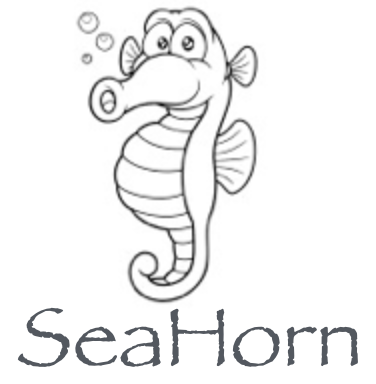| Windows | Ubuntu | OS X | Chat with us | Stories |
|---|---|---|---|---|
| TBD | TBD | |
#About#
SeaHorn is an automated analysis framework for LLVM-based languages.
#License# SeaHorn is distributed under a modified BSD license. See license.txt for details.
#Installation#
cd seahorn ; mkdir build ; cd buildcmake -DCMAKE_BUILD_TYPE=Release -DCMAKE_INSTALL_PREFIX=run ../- (optional)
cmake --build . --target extrato download extra packages cmake --build .to build dependencies (Z3 and LLVM)- (optional)
cmake --build .to build extra packages (crab-llvm) cmake --build .to build seahorncmake --build . --target installto install everything inrundirectory
SeaHorn and dependencies are installed in build/run
Optional components can be installed individually as well:
-
dsa-seahorn:
git clone https://github.com/seahorn/dsa-seahorn.git -
crab-llvm:
git clone https://github.com/seahorn/crab-llvm.git -
llvm-seahorn:
git clone https://github.com/seahorn/llvm-seahorn.git
Note that both dsa-seahorn and crab-llvm are optional. Nevertheless both are highly recommended. The former is needed when reasoning about memory contents while the latter provides inductive invariants using abstract interpretation techniques to the rest of SeaHorn's backends.
Latest news: due to some unsolved licensing issues crab-llvm is
temporary not publicly available. Please, if this impacts your current
project do not hesitate to contact us at [email protected].
#Usage#
SeaHorn provides a python script called sea to interact with
users. Given a C program annotated with assertions, users just need to
type: sea pf file.c
This will output unsat if all assertions hold or otherwise sat if
any of the assertions is violated. The option pf tells SeaHorn to
translate file.c into LLVM bitecode, generate a set of verification
conditions (VCs), and finally, solve them. This command uses as main
default options:
-
--step=large: large-step encoding. Each step corresponds to a loop-free program block. -
--step=small: small-step encoding. Each step corresponds to a basic block. -
--track=mem: model both scalars, pointers, and memory contents -
--track=ptr: model registers and pointers (but not memory content) -
--track=reg: model registers only -
--inline: inlines the program before verification -
--cex=FILE: stores a counter-example inFILE -
--crab: generates invariants using the Crab abstract-interpretation-based tool. Read here for details about Crab options. This option is currently disabled. -
-g: compiles with debug information for more trackable counterexamples.
sea pf is a pipeline that runs multiple commands. Individual parts
of the pipeline can be ran separately as well:
-
sea fe file.c -o file.bc: SeaHorn frontend translates a C program into optimized LLVM bitcode including mixed-semantics transformation. -
sea horn file.bc -o file.smt2: SeaHorn generates the verification conditions fromfile.bcand outputs them into SMT-LIB v2 format. Users can choose between different encoding styles with several levels of precision by adding:-
--step={small,large,fsmall,flarge}wheresmallis small step encoding,largeis block-large encoding,fsmallis small step encoding producing flat Horn clauses (i.e., it generates a transition system with only one predicate), andflarge: block-large encoding producing flat Horn clauses. -
--track={reg,ptr,mem}whereregonly models integer scalars,ptrmodelsregand pointer addresses, andmemmodelsptrand memory contents.
-
-
sea smt file.c -o file.smt2: Generates CHC in SMT-LIB2 format. Is an alias forsea fefollowed bysea horn. The commandsea pfis an alias forsea smt --prove. -
sea clp file.c -o file.clp: Generates CHC in CLP format. -
sea lfe file.c -o file.ll: runs the legacy front-end
To see all the options, type sea --help.
##Annotating C programs##
This is an example of a C program annotated with a safety property:
/* verification command: sea pf --horn-stats test.c */
#include "seahorn/seahorn.h"
int nd();
int main(void){
int k=1;
int i=1;
int j=0;
int n = nd();
while(i<n) {
j=0;
while(j<i) {
k += (i-j);
j++;
}
i++;
}
sassert(k>=n);
}SeaHorn follows SV-COMP convention of encoding error locations by a call
to the designated error function
__VERIFIER_error(). SeaHorn returns unsat when __VERIFIER_error()
is unreachable, and the program is considered safe. SeaHorn returns sat
when __VERIFIER_error() is reachable and the
program is unsafe. sassert() method is defined in seahorn/seahorn.h which can be found in seahorn/share.
#People#
